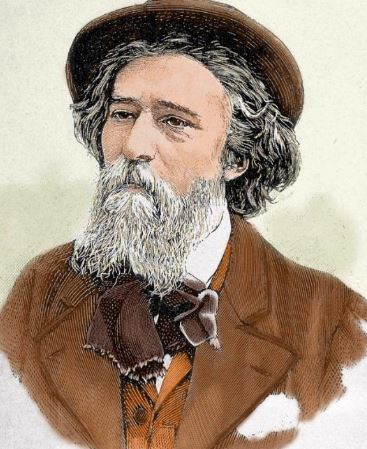The name Alphonse has been borne by several significant historical figures, particularly in medieval Europe. It has been associated with monarchs, saints, and influential leaders across different regions and eras. This article provides a comprehensive overview of some of the most notable individuals named Alphonse, including their contributions and impacts on history.
Alphonse I of Aragon (1073–1134)
Alphonse I was the King of Aragon and Navarre during the late 11th and early 12th centuries. His reign marked significant developments in the Christian reconquest of the Iberian Peninsula.
Early Life and Ascension
Born in 1073, Alphonse I was the son of King Sancho Ramirez of Aragon and Navarre. He became king in 1109 after the death of his father. His reign was characterized by his efforts to expand and consolidate his territories, particularly during the Reconquista—a series of campaigns to reclaim Iberian lands from Muslim rule.
Achievements
- Consolidation of Territories: Alphonse I successfully united the Kingdom of Aragon and the Kingdom of Navarre, creating a more cohesive political entity.
- Military Campaigns: He led several military campaigns against Muslim forces, significantly advancing Christian control in northern Spain. His campaigns included the capture of Zaragoza in 1118, a key strategic and economic city.
Legacy
Alphonse I’s efforts were instrumental in shaping the political landscape of medieval Spain. His conquests and consolidation of territories laid the groundwork for future Christian kingdoms in the Iberian Peninsula.
Alphonse II of Aragon (1157–1196)
Alphonse II was the King of Aragon, Catalonia, and the Balearic Islands from 1162 to 1196. He is remembered for his significant contributions to the expansion and administration of his realms.
Early Life and Reign
Alphonse II was born in 1157, the son of King Ramon Berenguer IV of Aragon and Petronila of Aragon. He ascended to the throne in 1162 and became a prominent figure in the politics of the Iberian Peninsula.
Achievements
- Conquest of the Balearic Islands: Alphonse II successfully conquered the Balearic Islands from Muslim rule, expanding his influence over the Mediterranean.
- Political Alliances: He forged important alliances through marriage, including his marriage to Sancha of Castile, which strengthened his political position in Spain.
- Administrative Reforms: Alphonse II implemented significant administrative reforms, improving the governance of his territories and enhancing the efficiency of his kingdom.
Legacy
Alphonse II’s reign was marked by territorial expansion and political stability. His achievements contributed to the consolidation of Christian power in the Iberian Peninsula and the strengthening of the Aragonese Crown.
Alphonse III of Aragon (1265–1291)
Alphonse III was the King of Aragon, Catalonia, and the Balearic Islands from 1285 to 1291. His reign was notable for his efforts to protect and consolidate his realm during a period of external and internal challenges.
Early Life and Ascension
Born in 1265, Alphonse III was the son of Peter III of Aragon. He became king in 1285 following the death of his father. His reign was marked by a series of challenges, including conflicts with neighboring kingdoms and internal disputes.
Achievements
- Defense Against External Threats: Alphonse III worked to defend his kingdom against external threats, including conflicts with the Kingdom of France.
- Internal Reforms: He implemented various internal reforms aimed at stabilizing his kingdom and addressing issues of governance and administration.
Legacy
Alphonse III’s reign was a period of relative stability amidst external pressures. His efforts to defend and reform his kingdom helped maintain the strength of the Aragonese Crown during a turbulent time.
Alphonse of Poitiers (1220–1271)
Alphonse of Poitiers was a French prince and the younger brother of King Louis IX of France. He played a notable role in the politics and conflicts of the 13th century.
Early Life and Role
Born in 1220, Alphonse was appointed as the Count of Poitiers and Duke of Anjou. He was involved in various military and political activities, including campaigns in the Mediterranean.
Achievements
- Military Campaigns: Alphonse led campaigns in the region of the Languedoc and participated in the crusades to the Mediterranean, including the Seventh Crusade.
- Administrative Duties: As a prince and noble, he was involved in the administration of his territories and played a key role in supporting his brother, King Louis IX.
Legacy
Alphonse of Poitiers is remembered for his contributions to the Crusades and his administrative role in the French monarchy. His efforts helped strengthen the influence of the French Crown in both domestic and international affairs.
The name Alphonse has been associated with several prominent historical figures who played significant roles in medieval European politics, military campaigns, and governance. From the Reconquista efforts of Alphonse I of Aragon to the administrative and military contributions of Alphonse of Poitiers, these individuals have left a lasting impact on history. Their achievements and legacies reflect the complex and dynamic nature of medieval European politics and society.




